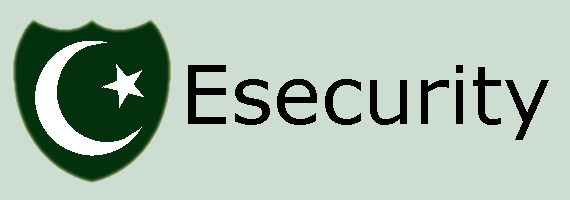 |
 |
 |
|
| Home | Talks | Training | Register | Contests | Venue | Sponsors | Team | Archives | Press | Contact Us | |
English | اردو
|
||
 |
 |
||
|
Call for Papers |
Friday-Tuesday, November 06-10, 2009, Lahore. Training Track-2: Hacking 101 Training: Hacking 101 Trainer: To Be Decided - Esecurity Duration: Two Days - Saturday and Sunday November 07 - 08, 2009. Cost: See below. Discount applicable if you register early.
Please download and fill Training Registration Form and post along with payment to the address given in the form. After you have posted the registration form, please send an electronic copy to the email address given below: register AT chase DOT org DOT pk A confirmation email will be sent once the post has been received. After the payment has been successfully transferred, a receipt will also be posted to your address as well which you should produce at the time of the event. Training Overview The perception of a hacker or an information security professional in the eyes of general public and even the learned is that of an individual who has a collection of some secret tools and hacks computers and networks sitting on his computer and that this can be learnt easily practising the tools. However, there is more to hacking and information security. Apart from knowing the right tools for the job, it involves the right thinking and the right mindset. Also, one needs to learn and master the steps involved in a penetration testing scenario. Each job presents a unique scenario and one must adopt one's thinking choosing the right tools for the job. Like all other professions, there are various skill levels of hackers and information security professionals. If a hacker is expert in network penetration testing, the other may be an expert in web application assessment. Expertise in any particular area, however, requires, knowledge of some fundamentals. This training package is meant to walk the participants through these essentials and basics of hacking and information security so as to form the basis of their later development in specialized areas. This hands-on training is meant for computer science and engineering students, professionals and researchers. A little knowledge of network protocols and programming is desired. The training will include practical demonstration with hands-on sessions with many well-known and less-known programs used for the job. This also includes programs developed by the trainer himself. Training Content A broad outline of the training is given below: Module 1: Penetration Testing Methodologies
Module 2: Footprinting
Module 3: Scanning
Module 4: Enumeration
Module 5: System Penetration
Module 6: Sniffers
Mr. Muhammad Farooq-i-Azam has a degree in electrical engineering from the
University of Engineering and Technology Lahore [He studied
at the constituent college at Taxila which is now
University of Engineering And Technology Taxila] and
then a M.Sc. in Computer Science
from the Punjab University College of Information Technology,
University of the Punjab, Lahore. He has served in
Pakistan Atomic Energy Commission for some years where he was
in-charge of the Computer Center at the head office and had a chance to work with some of the most state of the
art computers and machines. Apart from this he was also associated with a classified ;-) project to
get the nuclear touch.
Mr. Muhammad Farooq-i-Azam has been working with computers since they appeared in Pakistan. He has extensive work experience with computer networks and Unix based systems, Solaris, VAX/VMS machines and various distributions of Linux. He also designed and developed his own Intel 8086/8088 based Single Board Computer while at Pakistan Atomic Energy Commission for which he wrote its own operating system entirely in assembly language. Lately he has been working on the development of packet sniffers, which are low level tools, used to capture and dissect packets off the wire. He is also a member and project admin of the IPGRAB project, which is a respected packet sniffer, distributed with Debian Linux originally authored by Mike Borella. IPGRAB can decode a large number of protocols and can sniff packets in promiscuous mode. It is one of quite few projects distributed with a Linux distribution for which source code contribution is made by Pakistan as well. http://sourceforge.net/projects/ipgrab/ He is also an active supporter of Free and Open Source Software and believes in FOSS philosophy for Pakistan. He has conducted numerous trainings on computer and Internet security. 




|
|||||||||
| © CHASE 2006-2009, | ||||||||||